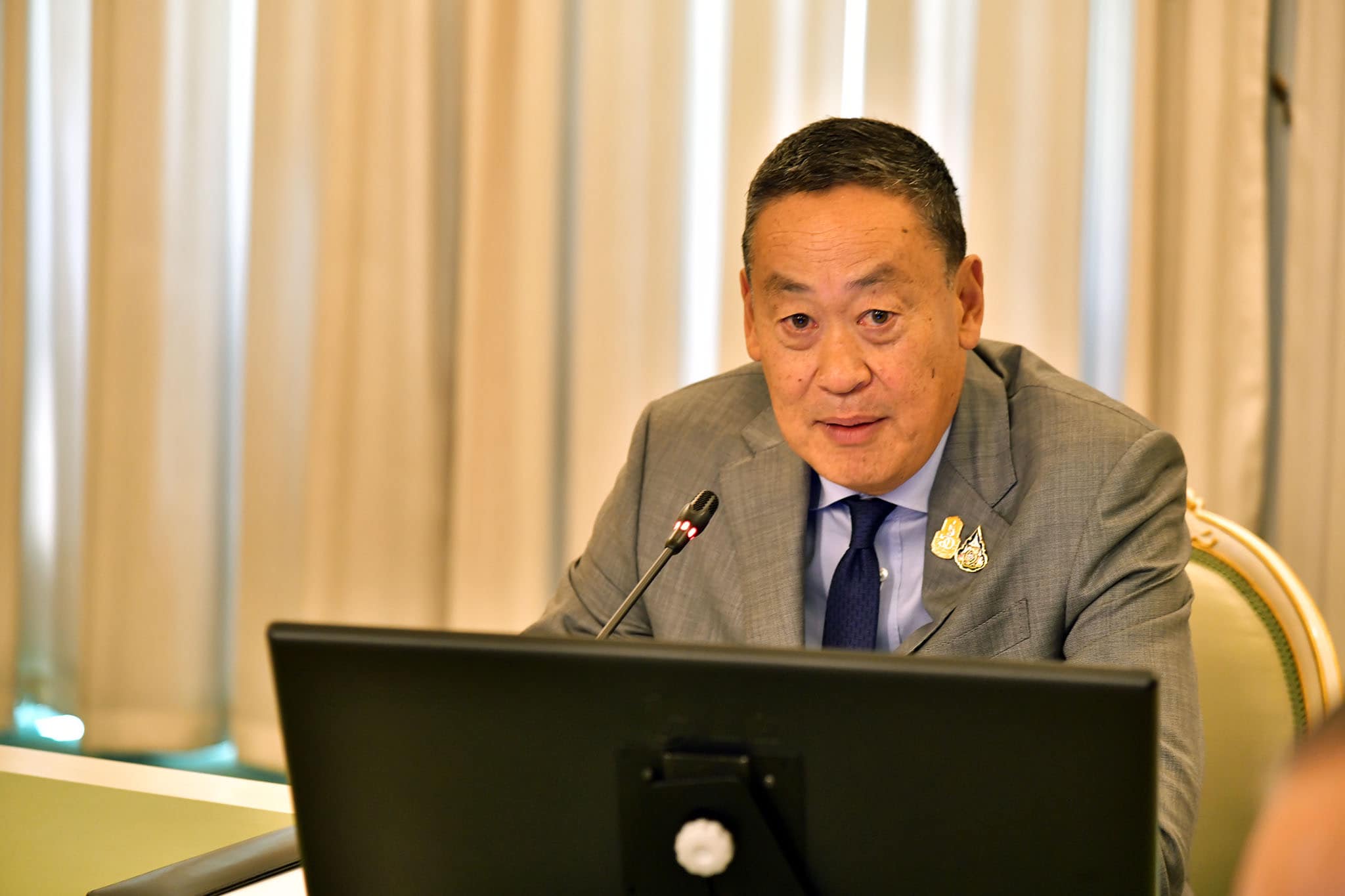BowerGroupAsia Senior Adviser Thitinan Pongsudhirak wrote an update on Thailand’s current political situation.
Thailand’s political risk has heightened alarmingly over the past two weeks in a dramatic and unanticipated twist. The Constitutional Court on May 23 accepted a petition filed by 40 caretaker senators to eject Prime Minister Srettha Thavisin from office, and the Office of the Attorney General charged former Prime Minister Thaksin Shinawatra with violating the lese majeste law against royal insult. As Thailand’s politicized justice system goes into overdrive, judicial power plays over these two cases and over the eventual dissolution of the main opposition Move Forward Party will again set political directions. Thaksin’s ominous fate is precarious, but Move Forward’s dismantlement appears on course with probable delay. In this mix, Srettha is likely to be let off and continue in office as head of an uneasy coalition government.
These three cases should be seen as connected and part and parcel of Thailand’s fundamental and systemic conundrum. The real power holders who ultimately call the shots cannot win an election through proxies, while poll winners have not been allowed to govern and implement policies for the completion of their terms in office. Put another way, when election losers do not abide by the results and try to derail opposing winners by military and judicial means, political instability and volatility inevitably ensue. This is an applicable benchmark in the comparative politics of Southeast Asia and beyond. It is why Myanmar and Thailand are stuck and why post-election Indonesia and the Philippines are able to move forward, notwithstanding their own set of challenges.
As a result, Thailand has been in a relative holding pattern while its peers have made varied headways. The Buddhist kingdom has faced two military coups in 2006 and 2014 combined with multiple judicial dissolutions of major poll winners from the Thaksin side in 2007 and 2008 and the disbandment of Move Forward’s precursor, the Future Forward Party, in 2020. Even by these harsh judicial standards, the current assertiveness of the justice system is unprecedented because it is aimed at both the main government and opposition parties.
At issue has been Thaksin’s political movements, maneuvers and mobilization. Following the Cabinet reshuffle in late April, it appeared that Srettha’s premiership was strengthened as several technocratic hands were appointed to the Cabinet to help implement the ruling Pheu Thai Party’s policy agenda, particularly the THB 10,000 ($270) digital wallet scheme to stimulate consumption and boost growth. The reshuffle concurrently included payback for a Thaksin lawyer and loyalist, namely Pichit Chuenban, who became a Cabinet minister attached to the Prime Minister’s Office. Pichit in 2008 was convicted and jailed for six months for contempt of court when he tried to bribe Supreme Court officials in favor of Thaksin.
The Pichit gambit became Srettha’s trouble. The 40 senators, allied with and answerable to a coup-maker from 2014, petitioned the Constitutional Court May 17, citing a controversial ethics and morality clause in the coup-inspired charter to argue that appointing a convict to the Cabinet violated the constitution. The court’s swift acceptance of the case May 23 meant that Srettha had 15 days to mount a defense. A guilty ruling would depose Srettha but would not solve the problem for the royalist-conservative establishment. Parliament would need to be convened, this time only the lower house without the military-appointed Senate, whose temporary five-year authority to choose the prime minister has expired. The next in line from Pheu Thai’s slate of three candidates after Srettha is either Thaksin’s daughter, Paetongtarn Shinawatra, or Chaikasem Nitisiri, a former public prosecutor. Paetongtarn has publicly indicated she is not prepared for the post, while Chaikasem, 75, is known to be unwell. Only several candidates are eligible from other coalition parties, but none of them has enough parliamentary seats to prevail. On the other hand, Srettha has stayed away from personal scandals and is widely seen to be hard working. Putting Srettha in the dock was a warning to Thaksin that his old ways of collusion and cronyism will not be tolerated.
But that warning now has become an indictment. Since his parole from police hospital February 18, prior to and after the Pichit Cabinet debacle, Thaksin has been out and about in politics, convening party meetings, pressing the flesh, touching base with former supporters in Chiang Mai in the north, Nakorn Ratchasima in the northeast, Bangkok and elsewhere around the country. A natural newsmaker and mover and shaker, Thaksin has appeared as a self-styled elder statesman of sorts. For example, he tried unsuccessfully to mediate a peace dialogue among Myanmar’s resistance columns and the military government. In short, Thaksin was back in full and for good in Thai politics. To his former adversaries, he is becoming a threat again in contravention of how it was supposed to go down after his homecoming.
Accordingly, the “super deal” struck between him and the royalist-military inner sanctum, which enabled him to return to Thailand after a 15-year exile, is now in doubt. The lese majeste charges against him, reportedly over critical comments he made to a Korean newspaper in 2015 about the Thai monarchy, is somewhat ironic because he was allowed back by the palace and the military with a royal pardon that reduced his jail sentence from eight years to 12 months with parole eligibility after six months. These charges — two counts so far, each carrying a jail term between three to 15 years with a conviction rate exceeding 90 percent — will place a straitjacket on Thaksin’s comeback plans. If he submits and steps back from political activities, he will likely be granted bail when he appears to face charges June 18. Although charges could also be dropped if he can somehow show that he is no threat at all, he will likely be kept on a political leash — charged with bail granted without immediate jail. The three-tier system of criminal, appeals and supreme courts can then hover over and contain him for months and years with jail as leverage.
While Srettha will likely be back in the saddle due to his hard work and the lack of a viable alternative, and Thaksin will be contained by charges of royal insult, the poll winner Move Forward will still likely be dissolved. Without the Srettha and Thaksin dramas, Move Forward’s decapitation would have come sooner rather than later, potentially in early June after its fully extended period of defense ends. But the Constitutional Court and the justice system are now under public pressure and scrutiny. Ruling on Srettha’s tenure, going after Thaksin and dismantling Move Forward around the same time may be too much to bear for the judiciary. Move Forward’s adjudication will likely drag on longer than expected. A dissolution that seemed imminent is now eventual.
We will continue to keep you updated on developments in Thailand as they occur. If you have comments or questions, please contact BGA Senior Adviser Thitinan Pongsudhirak at thitinan@bowergroupasia.com and BGA Thailand Managing Director Teresa “Art” Siripant at tsiripant@bowergroupasia.com.
Best regards,
BGA Thailand Team

Senior Advisor
Thitinan is a renowned scholar, journalist and expert in international relations and domestic politics across Asia. He has spent more than three decades analyzing and advising on Thailand and the region’s political economy, geopolitics and policy. He helps BGA and clients understand in-depth the global, regional and domestic issues that affect business. Thitinan is a professor of international relations and international political economy at Bangkok-based Chulalongkorn University’s Faculty of Political Science and a senior fellow at its Institute of Security and International Studies. He has lectured widely at local and international universities, military colleges and international organizations on political and ...
Read More


























